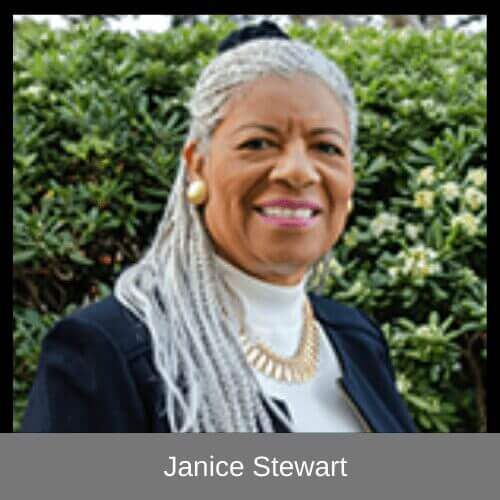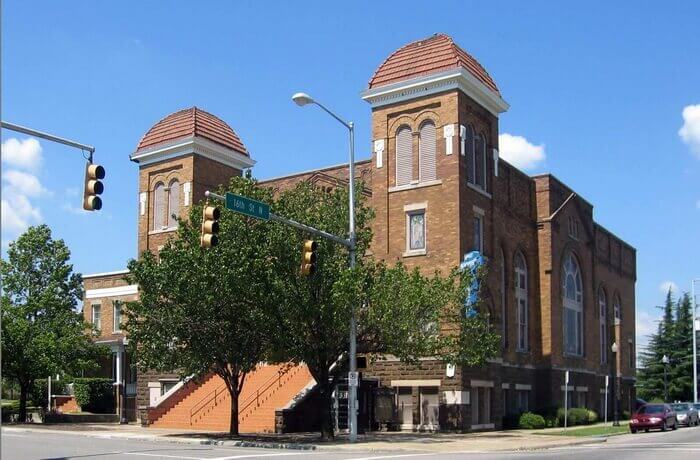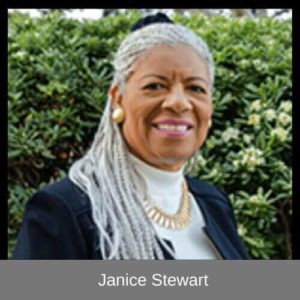
Ep. 47 - As a young girl, Janice Stewart was walking down the street to go to her church when she saw flames shooting up. Her friends were already there and inside. They were all killed. The "Birmingham Bombing" was a white supremacist terrorist attack which occurred at the African-American 16th Street Baptist Church in Birmingham, Alabama, on Sunday, September 15, 1963. Four members of a local Ku Klux Klan chapter planted 19 sticks of dynamite attached to a timing device beneath the steps located on the east side of the church. The 16th Street Baptist Church bombing marked a turning point in the United States during the civil rights movement and contributed to support for passage by Congress of the Civil Rights Act of 1964.
Top Takeaways:
-
- Growing up in a war-like place where fear of the unknown was prevalent and caused by racism
- The negative impact of racism against black people over the years
- The knowledge capacity vs human capacity among children today as compared to generations before
- The contribution of social media in suicide and identity crisis in young people today
- Learning to be happy even after going through life's adversities
Listen to her first-hand account and one of the most powerful podcasts you will ever hear!
"I was on my way to the church when the bomb went off. By the time we got near the church it was like a bomb scene. I was a kid and when you're a kid you don't think about the after effects of this. That was a hard time to lose friends in a war-like environment."
In this episode you'll discover:
Janice narrates her early life living in a segregated war-like community where children were killed in a bombing in Birmingham church, all due to racism [1:38]
She talks about her career in the housing sector and how she had to fight discrimination in her career over the years [10:27]
The difference between racism that is experienced today compared to what Janice experienced more than 50 years ago [18:57]
Janice narrates her experience during a camp she recently attended with her granddaughter [20:15]
How children today are facing societal pressure and are more materialistically driven compared to those who came before them [22:44]
Janice's view on how social media is contributing to children suicide and identity crisis [28:14]
Why she believes that that life has been hard but rewarding and has shaped her to be who she is today [33:40]
BACK THEN . . .
Janice takes us through growing up as a young African American woman in Birmingham, and we experience alongside her what life was like in segregated Alabama through her eyes. She ponders whether racism has really come that far since the Birmingham bombing and worries about what her grandchildren will face. She talks about the pressure on today's children of all races.
In the years leading up to the 16th Street Baptist Church bombing, Birmingham had earned a national reputation as a tense, violent and racially segregated city, in which even tentative racial integration of any form was met with violent resistance. Martin Luther King described Birmingham as "probably the most thoroughly segregated city in the United States".

16th Street Baptist Church - bomb was planted beneath the steps
Picture credit: By John Morse - Own work, CC BY 2.5, https://commons.wikimedia.org/w/index.php?curid=569761
The city had no black police officers or firefighters. Given the state's disenfranchisement of most blacks since the turn of the century, by making voter registration essentially impossible, few of the city's black residents were registered to vote. Bombings at black homes and institutions were a regular occurrence, with at least 21 separate explosions recorded at black properties and churches in the eight years before 1963, although none of these explosions had resulted in fatalities. These attacks earned the city the nickname "Bombingham".
The three-story 16th Street Baptist Church was a rallying point for civil rights activities through the spring of 1963. When the Southern Christian Leadership Conference (SCLC) and the Congress on Racial Equality became involved in a campaign to register African Americans to vote in Birmingham, tensions in the city increased. The church was used as a meeting-place for civil rights leaders such as Martin Luther King Jr., Ralph David Abernathy, and Fred Shuttlesworth, for organizing and educating marchers.
CAREER
Janice Stewart is President of JMS Solutions, a "regulation reality" company, specializing in affordable housing. Janice is a trainer and consultant for Nan McKay and Associates and has been a professional in the housing field for many years, with a demonstrated history of working in the government administration industry. She is a strong business development professional skilled in Nonprofit Organizations, Affordable Housing, Policy Analysis, Government, and Strategic Planning.
RESOURCES

